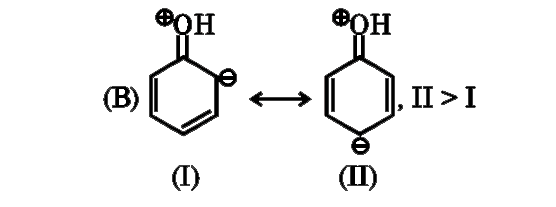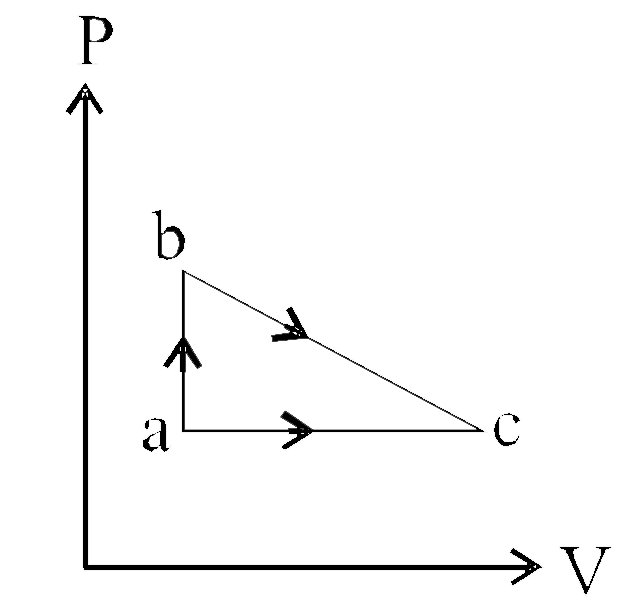For an elementary reaction
A(g)+B(g)+C(g)→2D(g)
initial partial pressure of A,B C are 1,2, and 3 atm respectively, then ratio of initial rate of reaction to rate when partial pressure of D becomes 1 atm is Solution in Gujrati




Step by step video & image solution for For an elementary reaction A(g)+B(g)+C(g)to2D(g) initial partial pressure of A,B C are 1,2, and 3 atm respectively, then ratio of initial rate of reaction to rate when partial pressure of D becomes 1 atm is by Maths experts to help you in doubts & scoring excellent marks in Class 12 exams.
Updated on:21/07/2023Topper's Solved these Questions
- TEST PAPERSBOOK - ALLEN CHAPTER - TEST PAPERSEXERCISE - MATHEMATICS
136 Videos
- TEST PAPERSBOOK - ALLEN CHAPTER - TEST PAPERSEXERCISE - PHYSICS
140 Videos
- TEST PAPERBOOK - ALLEN CHAPTER - TEST PAPEREXERCISE - CHEMISTRY SECTION-II
16 Videos
- VECTOR ALGEBRABOOK - ALLEN CHAPTER - VECTOR ALGEBRAEXERCISE - All Questions
1 Videos
Similar Questions
If a be sum of the odd numbered terms and b the sum of even numbered terms of the expansion (1+x)n,n ε N then (1−x2)n is equal to
View SolutionA gas can be taken from state a to c by two different reversible processes,a⇒c or a⇒b=c. During the direct process a⇒c,20.0J of work is done by the system and 30.0J of heat is added to the system. During the process a⇒b⇒,25.0J of heat are added to the system. How much work is done by the system during a⇒b⇒c?

View SolutionThe molar mass of a substance , each molecule of which contains 9 C atoms , 13 H-atoms and 3.32×10−23 g of other component is (NA=6.022×1023)
View SolutionFind the value of a, for which point P(a3,2) is the midpoint of the line segment joining the points Q(−5,4)andR(−1,0).
View SolutionThe reaction A(g) + 2B(g) rarr C(g) + D(g) is an elementary process. In an experiment involvig this reaction, the initial partial pressure of A and B are p_(A) = 0.60 atm and p_(B) = 0.80 atm , respectively. When p_(C ) = 0.20 atm , the rate of reaction relative to the initial rate is
View SolutionThe reaction A(g)+2B(g)rarrC(g)+D(g) is an elementary process. In an experimetn, the initial partial pressure of A and B are P_(A)= 0.60 and P_(B)= 0.80 atm . When P_(C )=0.2 atm , the rate of reaction relative to the initial rate is
View SolutionFor the reaction A(g) + B(g) hArr C(g) at equilibrium the partial pressure of the species are P_(A)=0.15"atm",P_(C)=P_(B)=0.30"atm" . If the capacity of reaction vessel is reduced, the equilibrium is re-established. In the new situation partial pressure A and B become twice. What is the partial pressure of C?
View SolutionIn an elementary reaction A(g)+2B(g) to C(g) the initial pressure of A and B are P_(A)=0.40 atm and P_(B) =0.60 atm respectively. After time T, if pressure of C is observed 0.1 atm, then find the value of (r_(i) (" initial rate of reaction"))/(r_(t)(" rate of reaction after time t")) .
View SolutionFor the reaction,
A(g)+2B(g)→C(g)+D(g) (dxdt)=k[A][B]2
Initial pressure of A and B are respectively 0.60 and 0.80 atm. At a time when pressure of C is 0.20 atm rate of the reaction, relative to the initial value is :
View SolutionThe reaction A(g) + 2B(g) → C(g) is an elementary reaction. In an experiment involving this reaction, the initial pressures of A and B are PA = 0.40 atm and PB = 1.0 atm respectively. When PC=0.3 atm, the rate of the reaction relative to the initial rate is:-
View SolutionThe equilibrium constant Kc for the reaction, A(g)+2B(g)⇔3C(g) is 2x×10−3
What would be the equilibrium partial pressure of gas C if initial pressure of gas A & B are 1 & 2 atm respectively.
View SolutionFor the reaction, A(g)+2B(g)→C(g)+D(g)
dxdt=k[A][B]2
Initial pressure of A and B are respectively 0.60 atm and 0.80 atm. At a time when pressure of C is 0.20 atm, rate of the reaction, relative to the initial value is
View SolutionThe reaction, A(g)+2B(g) to C(g)+D(g) is an elementary process. In an experiment, the initial partial pressure of A and B are P_(A)=0.60 and P_(B)=0.80 atm. When P_(C )=0.2 atm, the rate of reaction relative to the initial rate is
View SolutionThe reaction A(g) + 2B(g) to C(g) is an elementary reaction. In an experiment involving this reaction, the initial pressures of A and B are P_A = 0.40 atm and P_B = 1.0 atm respectively. When P_C =0.3 atm, the rate of the reaction relative to the initial rate is:-
View SolutionIn an elementary reaction A(g)+2B(g)→C(g) the initial pressure of A and B are PA=0.40 atm and PB=0.60 atm respectively. After time T, if pressure of C is observed 0.1 atm, then find the value of ri( initial rate of reaction)rt( rate of reaction after time t).
View SolutionThe reaction A(g) + 2B(g) rarr C(g) + D(g) is an elementary process. In an experiment involvig this reaction, the initial partial pressure of A and B are p_(A) = 0.60 atm and p_(B) = 0.80 atm , respectively. When p_(C ) = 0.20 atm , the rate of reaction relative to the initial rate is
View Solution
